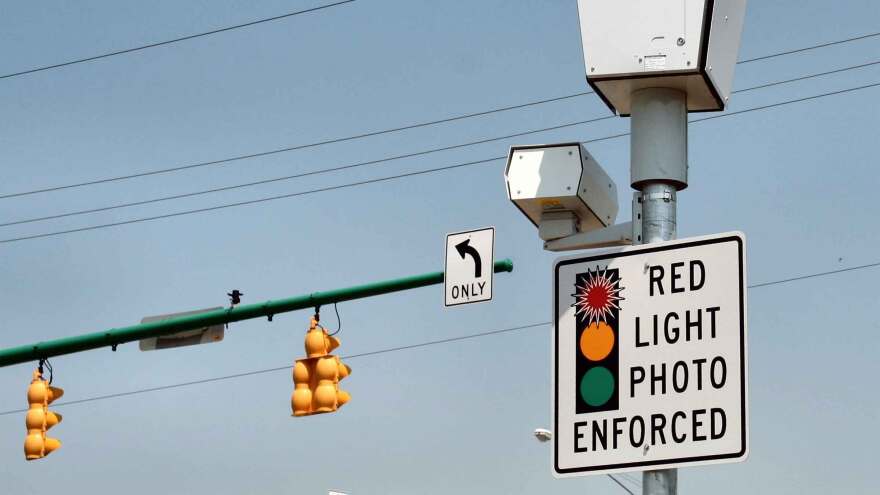The Illinois House on Wednesday approved legislation Wednesday that would ban certain red-light cameras. It would only apply in communities with fewer than 25,000 people that have not been granted a special status known as “home rule.”
It comes after former state Sen. Martin Sandoval pleaded guilty to accepting bribes from a red-light camera company executive.
Red light cameras have been a central part of a federal corruption investigation that’s stretched from the Chicago suburbs to the Illinois Statehouse, and backers say the partial ban could help fight corruption in government.
But state Rep. Michael Zalewski, a Democrat from Riverside, said Illinois is in the midst of a “great debate” on ethics. Taking drastic action on red-light cameras would be premature, he said.
“Doing something that is going to look great, but in reality may not solve every single problem that we have, is going to set back the broader reform conversation in my opinion,” Zalewski said.
Although the legislation passed on a vote of 84-4, Zalewski was one of five legislators who voted “present.”
“We have a lot of work to do on reform and ethics and how we conduct ourselves in this building over the next six weeks, and this is not the right start to do it,” he said.
Some lawmakers complained that they would prefer a total ban on all red-light cameras in Illinois. State Rep. David McSweeney, the bill's sponsor, said he supports that idea. But he thought the more narrow ban was more likely to win support.
Other lawmakers made a social justice argument for eliminating the cameras. State Rep. Rita Mayfield, a Democrat from Waukegan, said red light cameras have been a thorn in the side of black and brown communities for years.
“A lot of individuals have lost their cars, they’ve lost their ability to drive their cars,” Mayfield said. “These red light cameras have not helped anyone in the communities.”
A 2014 study from Texas A&M showed red light cameras increased rear-end collisions by 22 percent.
The legislation is House Bill 322.






